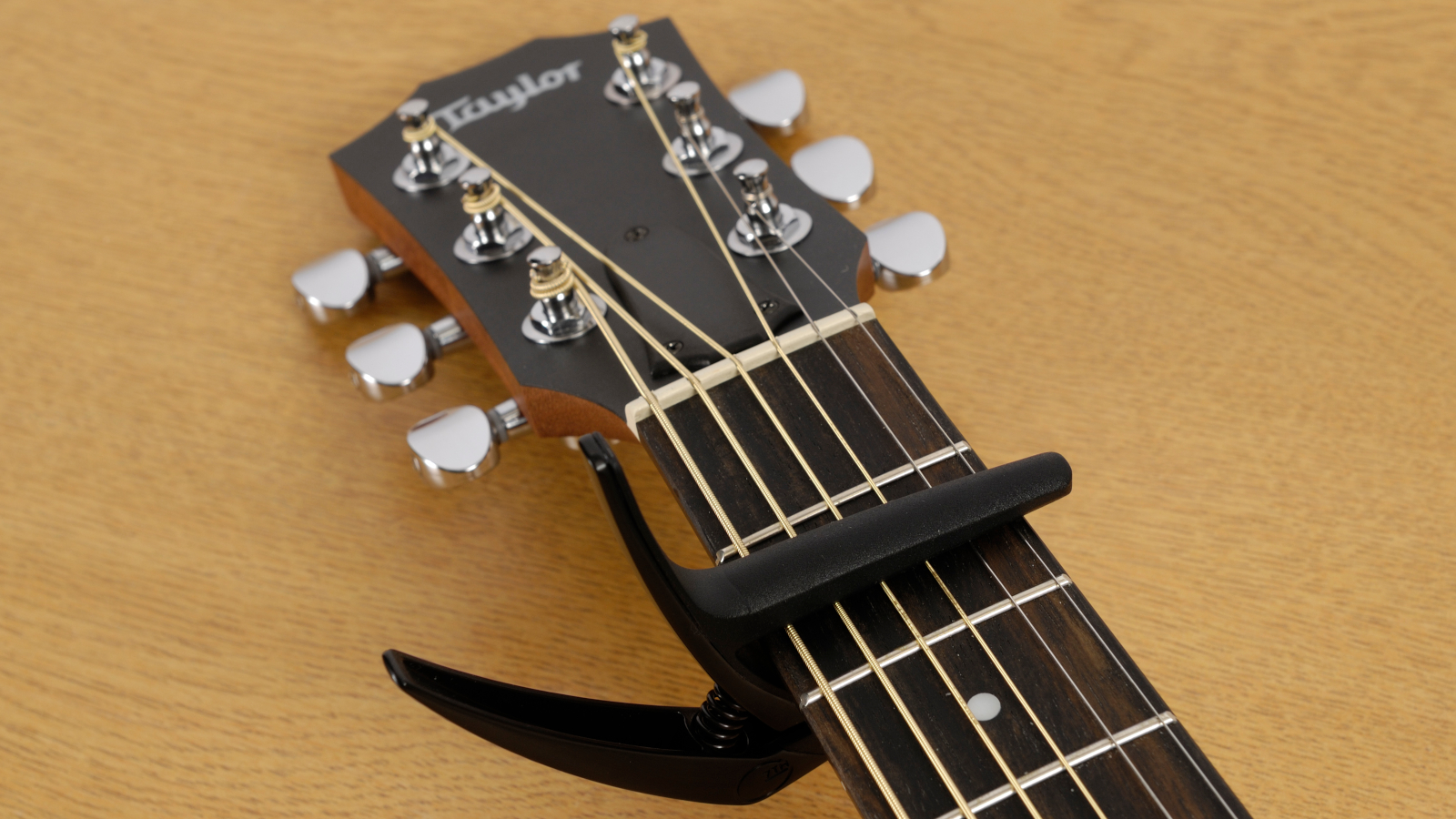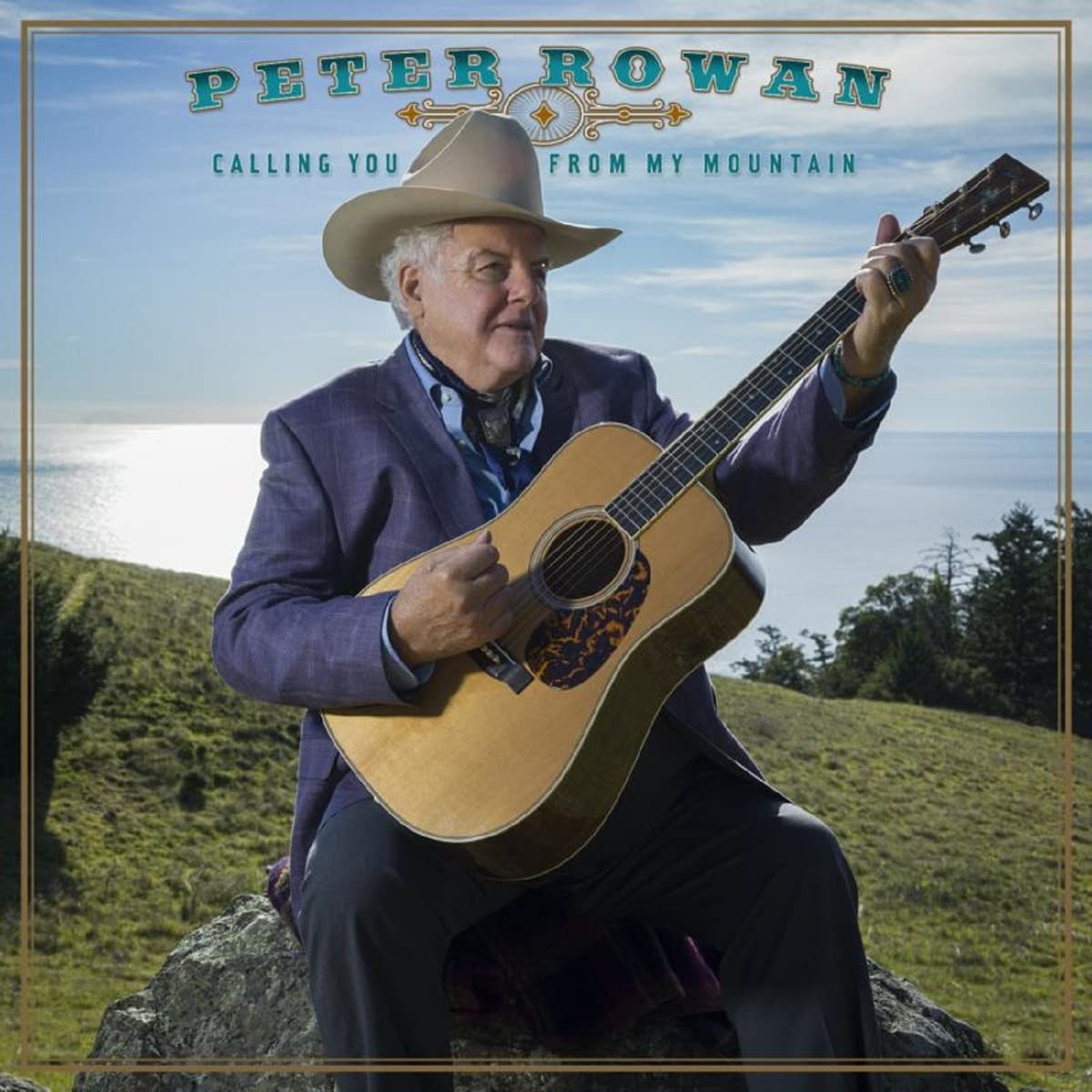“It Was Like Coming Full Circle to Honor Libba Cotten”: Peter Rowan Reveals the Origin of “Panama Red”
The Americana legend tells the story of his signature song and explains how to play it

“Panama Red” is well known in the jam-grass scene, but it’s perhaps not as widely known that Peter Rowan wrote the song.
It was originally a 1973 hit for the New Riders of the Purple Sage, and the first popular version with Rowan singing and playing it came when the supergroup Old & In the Way, released their eponymous album in 1975, two years after their seminal time, in 1973, and a year after they disbanded.
Jerry Garcia was the connective tissue between the two projects, playing pedal steel in the early New Riders and banjo in Old & In the Way.
During Rowan’s recent interview, he spoke fondly of Old & In the Way, saying, “Jerry gave us a tremendous gift, he gave us his blessing.”
Rowan went on to offer his insights into “Panama Red.”
Origin
“I wrote ‘Panama Red’ after leaving my first project with David Grisman, Earth Opera, around the summer of the Woodstock music festival [1969],” Rowan explains.
When it eventually became a hit, the manager of Seatrain claimed it. I never saw any money
Peter Rowan
“It’s a fun song because it captures the vibe of the time. I was from the East Coast, but I found there to be more creativity on the West Coast during that time period.
“Nobody wanted to do ‘Panama Red’ on the East Coast. I took it to Seatrain [the roots fusion band in which Rowan played from 1969 to 1972], and when it eventually became a hit, the manager of Seatrain claimed it. I never saw any money, even though it became the title of an album for the New Riders of the Purple Sage [1973’s The Adventures of Panama Red].
“When David Grisman and I got back together for Old & In the Way in 1973 with Jerry Garcia, Vassar Clements and John Khan, we started playing it.”

Key and Chords
“It’s in the key of D, but I play it with a capo at the second fret, so I’m looking at the fretboard as if it’s in the key of C and working from an open C chord progression,” Rowan continues, “so we’ll go with that for this discussion.
It’s in the key of D, but I play it with a capo at the second fret
Peter Rowan
“The chorus is the genesis of the song. ‘Panama Red’ starts out going from A minor to G, and then the chords go from F to D7/F# and back to G, as I sing, ‘He’ll steal your woman, then he’ll rob your head.’
“It goes back to A minor when I sing ‘Panama Red,’ and then again to G for the repeat of the title.
“Now, there’s a chromatic bass run from the G down to the E; that’s when I sing, ‘On his white horse, Mescalito, he comes breezing through town.’ Hit an F chord on ‘breezin’’ and then go to G7 for ‘I’ll bet your woman’s off in bed with old…’ before resolving on the C for ‘Panama Red’ and the start of the verse.”
The History Behind the Iconic Intro
“The chromatic run that became the intro is actually part of the chorus, and the tune just had to kick off there,” Rowan says.
“It’s my favorite part of the song because it’s similar to Elizabeth Cotten’s ‘Freight Train,’ which was hugely influential on me when I was learning to play acoustic guitar. So it was like coming full circle to honor Libba Cotten.
“‘Panama Red’ is in the key of C and goes to E, which is the same thing that happens in ‘Freight Train.’ The progression when she sings ‘Please don’t tell them what train I’m on’ is the same as when I sing ‘On his white horse, Mescalito, he comes breezin’ through town.’
“I thought that chord change was the coolest thing, and I’ve loved it forever.”

Browse the Peter Rowan catalog here.
Browse the Elizabeth Cotten catalog here.
Get The Pick Newsletter
All the latest guitar news, interviews, lessons, reviews, deals and more, direct to your inbox!
Jimmy Leslie has been Frets editor since 2016. See many Guitar Player- and Frets-related videos on his YouTube channel, and learn about his acoustic/electric rock group at spirithustler.com.
“I knew he was going to be somebody then. He had that star quality”: Ritchie Blackmore on his first meeting with Jimmy Page and early recording sessions with Jeff Beck
“He used to send me to my room to practice my vibrato.” His father is the late Irish blues guitar great Gary Moore. But Jack Moore is cutting his own path with a Les Paul in his hands










